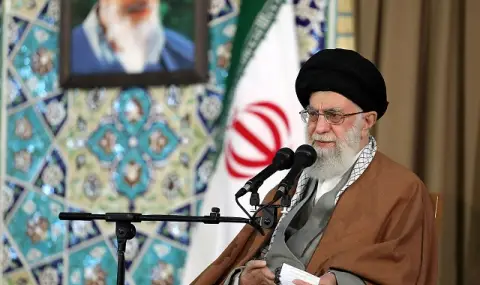Thousands of Iranians took out streets of the northern Iranian city of Tabriz on Tuesday to mourn President Ebrahim Raisi, who died in a helicopter crash near the border with Azerbaijan at the weekend, along with the foreign minister and five other senior officials, reports Reuters.
State television broadcast live images of mourners, many dressed in black, beating their chests as a truck covered in white flowers and carrying the caskets wrapped in the national flag moved slowly through the crowd.
"Everyone came to say goodbye to the fallen president and his comrades, regardless of their faction, ethnicity or language," said Tabriz MP Masoud Pezeshkian.
Although state television reported large crowds in Tabriz, some observers noted a stark contrast in the public grief compared to past commemorations of the deaths of other high-profile figures in the Islamic Republic's 45-year history.
Iran declared five days of mourning for Raisi, but lacked the emotional rhetoric that accompanied the death of Qassem Soleimani, a senior commander in the elite Revolutionary Guards killed by a US missile in 2020 in Iraq, whose funeral drew huge crowds of mourners weeping from grief and rage.
Raisi's body was flown from Tabriz, the nearest major city to the remote crash site, to Tehran airport before being flown to the Shiite holy city of Qom. From there, it will return to the capital to lie in state at Tehran's Grand Mosala Mosque before being flown to his hometown of Mashhad, in eastern Iran, for burial on Thursday.
Mourners carried placards with images of Raisi, Foreign Minister Hossein Amirabdolakhian, the Friday prayer leader in Tabriz and other officials who also died in the crash.
Deepening the crisis
The president's death came at a time of deepening crisis between spiritual leaders and society over issues such as tightening social and political control and economic hardship.
To restore damaged legitimacy after a historically low voter turnout of around 41% in March's parliamentary elections, Iran's rulers need to rekindle public enthusiasm to ensure high turnout in early presidential elections to be held on June 28.
Iranians still have painful memories of dealing with the national unrest sparked by the death in custody of Masha Amini in 2022, which was quelled by a violent state crackdown that included mass detentions and even executions. Widespread public anger over declining living standards and corruption may also keep many Iranians at home.
Some analysts say millions have lost hope that Iran's ruling clerics can resolve an economic crisis fueled by a combination of US sanctions, mismanagement and corruption.
Raisi has implemented the hard-line policies of his mentor, Supreme Leader Ayatollah Ali Khamenei, aimed at strengthening clerical power, cracking down on opponents and taking a hard line on foreign policy issues such as nuclear talks with Washington to revive the 2015 Iran nuclear deal .
Any candidate entering the race must first be vetted by the Guardian Council, which has often disqualified even prominent conservative and moderate officials, meaning the overall policy direction is unlikely to change.
p>Although he was considered a leading candidate to take over from the 85-year-old supreme leader when he died, two sources said Raisi's name was dropped from the list of potential successors about six months ago because of his declining popularity.
Raisi's death brought "great uncertainty" in the succession, analysts say, fueling rivalries in the hardliner camp over who will succeed Khamenei as the country's supreme leader.
